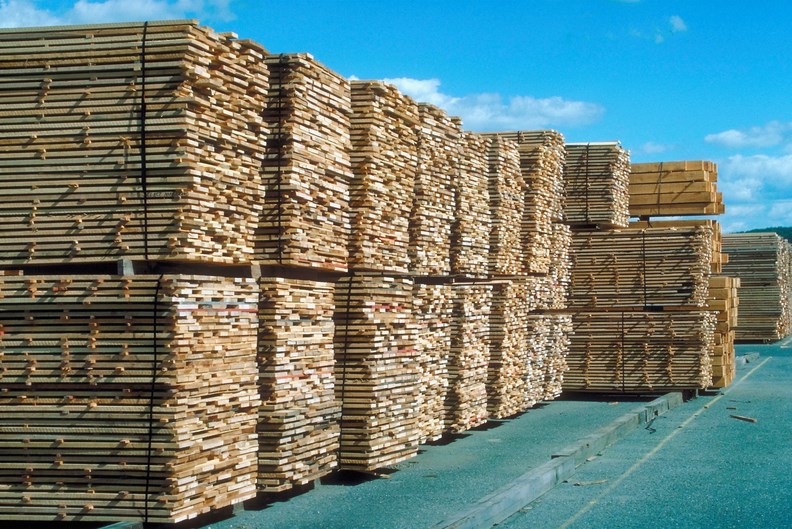Conflict over Canada's detainment of Huawei Technologies Co. Ltd. CFO Meng Wanzhou has brought repeated calls in government, trade promotion and academic circles for Canada and B.C. businesses to divert trade away from the Chinese market.
But for B.C.'s forestry-products sector - often seen as one of the province's fundamental industries, contributing $12.9 billion in GDP to the B.C. economy - those calls to diversify beyond Canada's largest Asian trade partner have been met with defiance.
Perhaps surprisingly, one of the more recent calls for diversification came at the 2019 COFI Convention in Vancouver last month, when a keynote speaker, Robert Johnston, managing director of the global energy and natural resources division of the Eurasia Group consultancy, told attendees that resource producers should look to alternative markets like India.
Johnston noted that the global commodity outlook is weakening because of U.S.-China trade tensions, that the tariff war will likely further slow China's growth and that India and Southeast Asia may become more important for Canada's natural resources sector.
In addition, China's decision to ban canola imports from two major Canadian exporters, widely seen as retaliation against Meng's arrest, has made some local trade analysts nervous when they look at the high percentage of Canadian and B.C. exports going to China. B.C. provincial ministers have turned trade attention in Asia to markets like South Korea and Japan, where established free-trade agreements and pacts like the Comprehensive and Progressive Agreement for Trans-Pacific Partnership have lowered tariff barriers.
That diversification, says one U.S.-based analyst, makes sense, even with China's economy being the world's second largest at US$13 trillion in nominal GDP last year.
"It's always good to diversify your risk even when times are good, but now even more so, as it regards trade and investment with and in mainland China," said New York-based Park Strategies LLC senior vice-president Sean King. "Yes, [China's] enormous market size makes it harder for some companies to look elsewhere even when it's in their own interest to do so. But bigger is not always better. It is, in fact, sometimes worth growing a little less and selling a little less to safeguard your own values and security."
King added that while Japan and South Korea may not have China's market breadth, they can "offer greater market depth and higher per capita consumer spending" and higher levels of protection for intellectual property.
But for B.C. forestry, which depends on the Chinese market for a quarter of its business, there appear to be no plans to turn back. Canfor (TSX:CFP) CEO Don Kayne, at the company's annual general meeting in late April, said the firm has no plans to pull back from the country that is its largest market for pulp.
"I was in China a few weeks ago," Kayne said at the meeting. "I continue to be very encouraged by the positive discussions we are having with customers and Chinese government officials. Now more than ever, I believe it's important for industry, along with the governments of Canada and B.C., to maintain our strong relationships in China with customers and government officials."
Other officials noted the amount of investment B.C. and Canadian producers have made to open up China over the last two decades, and a consequent unwillingness to retreat from that hard-won market. China, they noted, was not traditionally a wood-building culture but now yields major opportunities in wood manufacturing of items like furniture, as well as in green homes and mid-rise hotels and resort developments.
"Look, we've made real strides in that market," Yurkovich said. "We were at 2% to 3% in that market 15, maybe 18 years ago. Now it's 25% of our business. So it has been a huge focus; it has been a partnership between industry and both the provincial and federal governments to open up that market, dealing with issues like build standards and the know-how to build with wood."
Yurkovich added that, while B.C. provincial ministers cancelled a scheduled visit to China to promote the forestry sector last December, about 29 companies continued with the original itinerary. That delegation included Yurkovich, who says she plans to visit the market again this fall, if not sooner. COFI, meanwhile, has regular interactions with Chinese partners and market players.
Yurkovich said her delegation did not sense any change in mood while in China after Meng's arrest, adding that everything was business as usual during last December's meetings.
"Of course we are closely monitoring it," she said. "It's an important market, and we are watching what's going on. You asked me if we are seeing anything that could be impacting our business as yet, and no, I haven't seen anything right now. If there was something that changed significantly, we would re-evaluate.... Those customer relationships are very important, and we have members of our team going back and forth to and from China all the time. So we haven't changed our operations at all."
Yurkovich said federal officials need to look closer at the hard numbers for the forestry sector, which provides 140,000 people with direct, indirect or induced jobs that are "well-paying" and "family-supporting."
"The health of our industry and our industry's ability to prosper and support workers and their communities is really, really important," she said. "It's a foundational industry, and we need to make sure that we steward the resource well, but also focus on creating the climate where our industry can be competitive and provide high-quality products that are in demand to the world."



